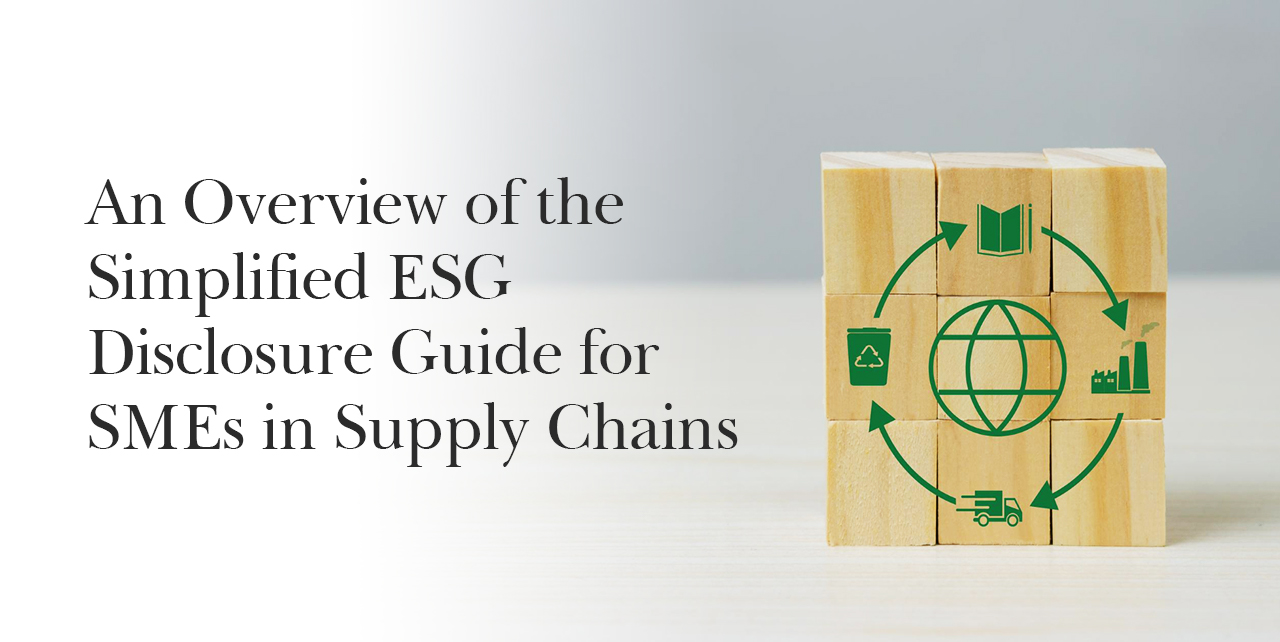As Environmental, Social, and Governance (ESG) standards become more critical in today’s global business world, ASEAN countries are stepping up. They aim to guide businesses, especially Small and Medium Enterprises (SMEs), toward transparent and effective ESG practices.
To support this shift, the ASEAN Capital Markets Forum (ACMF) introduced the ASEAN Simplified ESG Disclosure Guide (ASEDG). This practical framework helps businesses begin their ESG reporting in a structured and accessible way. It’s a big step in making ESG reporting easier for SMEs and boosting their role in global sustainable supply chains.
What Is the ESG Disclosure Guide?
The ESG Disclosure Guide simplifies ESG reporting for ASEAN businesses. Many SMEs struggle with limited resources and find global frameworks too complex. This guide addresses that issue directly.
It focuses on three core areas: Governance, Environment, and Social disclosures. These are further divided into 15 practical topics. While it draws from global standards like the IFRS Sustainability Disclosure Standards, it adapts them for regional needs. As a result, businesses can enter the ESG space more confidently and effectively.
The Three Main ESG Disclosures and 15 Topics
The ASEDG focuses on three principal areas:
- Governance Disclosure
- Environment Disclosure
- Social Disclosure
Under each of these categories, the guide outlines specific topics businesses are encouraged to disclose, totaling 15 key areas that capture a company’s sustainability-related risks, opportunities, and performance.
Here’s a breakdown:
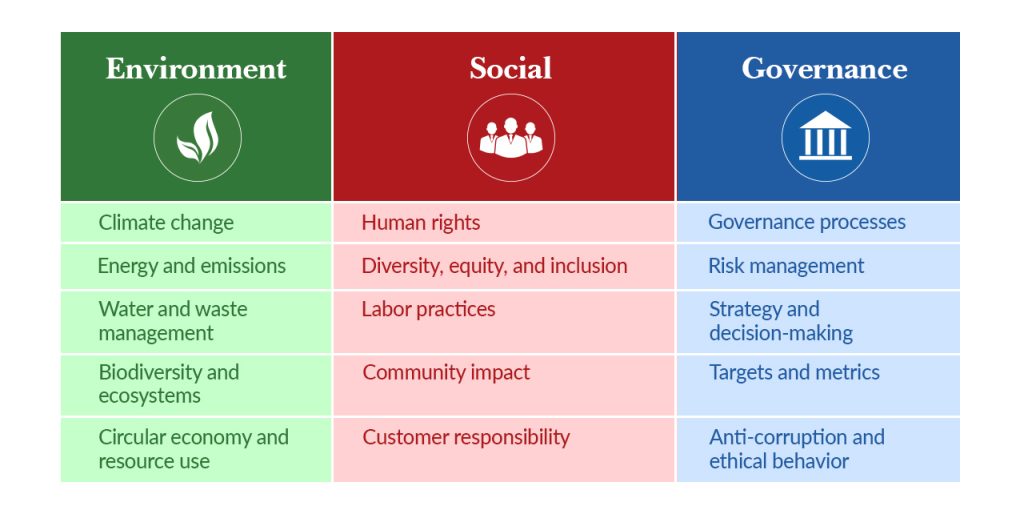
Key Areas in the ESG Disclosure Guide
Environmental Disclosure
This section guides SMEs in tracking their environmental impact. It includes greenhouse gas emissions, energy and water use, and waste management. By reporting on these, businesses can reduce their environmental footprint and align with sustainability goals.
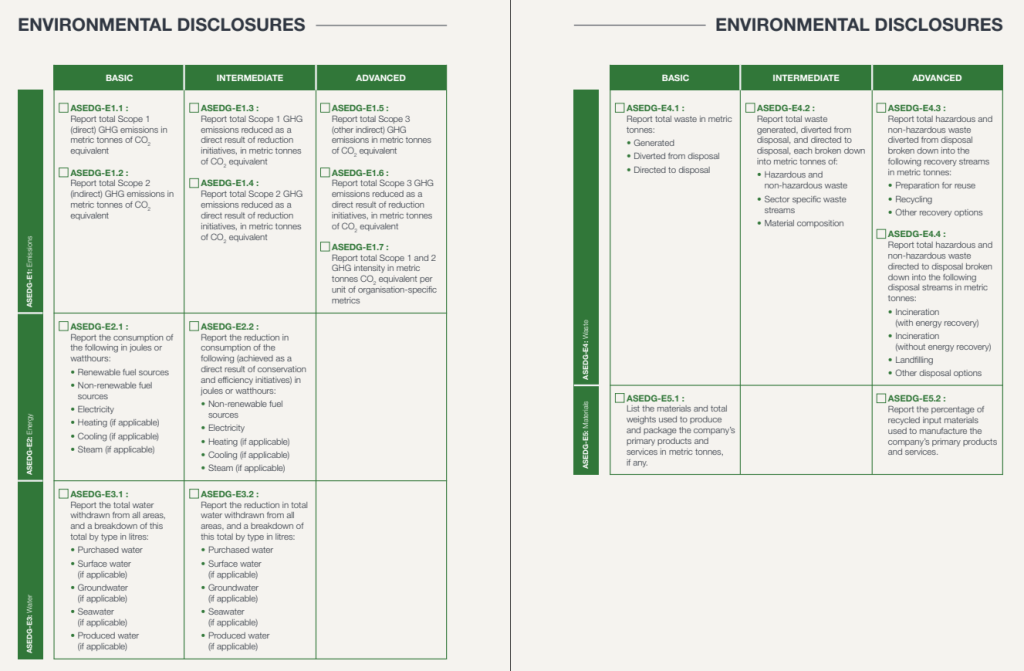
Social Disclosure
The Social disclosure pillar addresses how SMEs interact with people including employees, customers, suppliers, and the communities they operate in. It covers important topics such as labour practices, diversity and inclusion, health and safety, and community involvement. Reporting on social factors builds trust with stakeholders and enhances a company’s reputation. It also ensures that SMEs are contributing to fair, inclusive, and safe working environments throughout the supply chain.
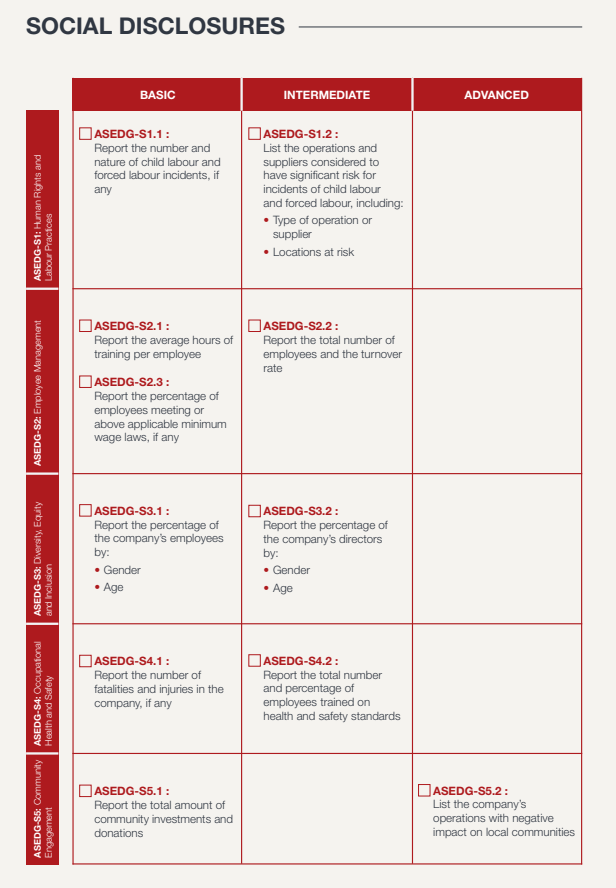
Governance Disclosure
Governance focuses on how SMEs are managed and how decisions are made to ensure transparency, accountability, and ethical conduct. The topics include corporate ethics, risk management, board structure, anti-corruption practices, and regulatory compliance. Strong governance practices not only protect a company’s reputation but also ensure long-term business success. By prioritizing governance, SMEs show investors, customers, and partners that they are committed to responsible and sustainable business practices.
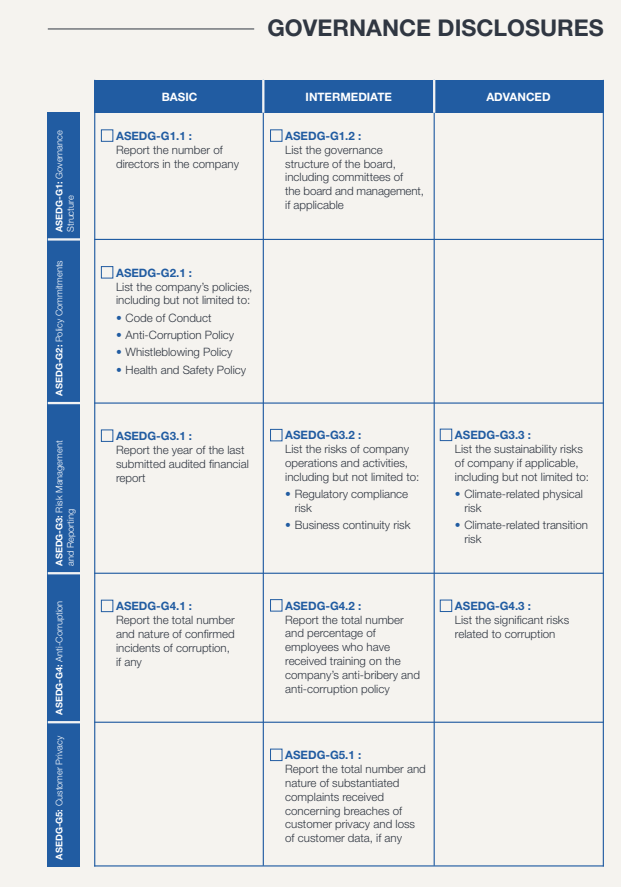
Why the ESG Disclosure Guide Matters?
The ASEDG is a valuable starting point for ASEAN businesses, especially SMEs, looking to build strong ESG foundations without being overwhelmed by complex global reporting standards. By focusing on these three key disclosures and 15 topics, companies can take meaningful first steps toward more sustainable and responsible operations.
For more detailed information, examples, and reporting templates, we encourage you to refer to the full document available here: ASEAN Simplified ESG Disclosure Guide (ASEDG)

